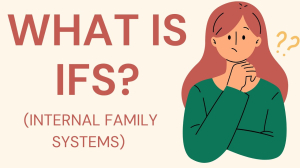
IFS is based on several key principles. The first is that the mind is naturally multiple. Rather than seeing ourselves as a single, unified “self,” IFS recognizes that we all have inner parts with their own perspectives, feelings, and desires. For example, you might notice a critical part that pushes you to achieve, an anxious part that worries about safety, or a playful part that just wants to enjoy life. This inner diversity is normal—it only becomes problematic when parts become extreme or locked in conflict.
At the center of the IFS model is the Self, which represents a calm, compassionate, and wise presence within everyone. The Self is not a part; it is who we are at our core. When the Self takes the lead, parts feel heard and understood, and inner harmony becomes possible. Another important principle is that there are no bad parts. Every part has a positive intention, even if its behavior appears harmful. An inner critic may sound harsh, but its ultimate goal is to protect you from failure. A numbing part may drive unhealthy habits, but it is often shielding you from unbearable pain. By approaching parts with curiosity rather than judgment, we can uncover their protective roles and guide them toward healthier ways of supporting us.
.jpeg)
The healing process in IFS doesn’t involve eliminating parts but instead listening to them, building trust, and helping them release their burdens. This often follows a natural rhythm: identifying when a part is activated, separating it from the Self, listening to its fears and protective role, supporting wounded exiles in unburdening their painful emotions, and integrating all parts into healthier roles guided by the Self.

In short, Internal Family Systems invites us to move from self-judgment to self-acceptance, from fragmentation to inner harmony, and from pain to compassion-led healing.








